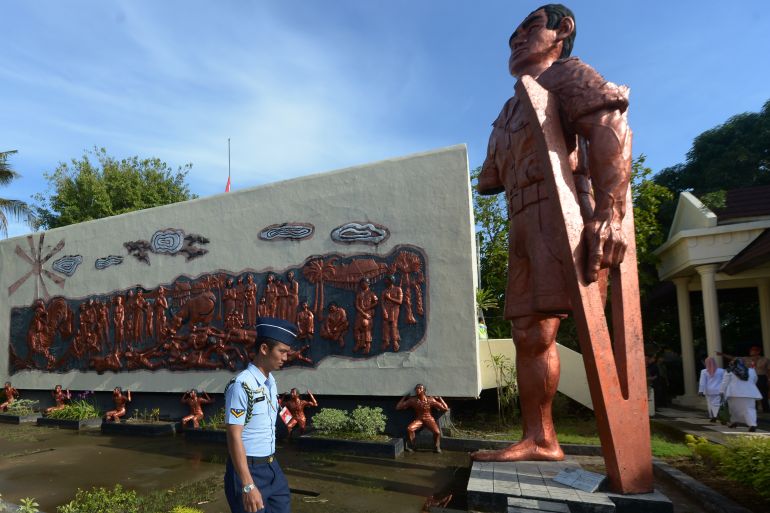Netherlands to compensate children of executed Indonesians
After court ruling, Dutch government says it is offering scheme to allow children of summarily executed men to claim 5,000 euros ($5,890) in compensation.

The government of the Netherlands has said it will offer compensation to the children of Indonesians who were executed by Dutch soldiers during the Indonesian War of Independence between 1945 and 1950.
The announcement on Monday follows a court ruling earlier this year that ordered the state to compensate widows and children of 11 men killed between 1946 and 1947 in Indonesia’s southern Sulawesi island, then called Celebes.
Dutch judges previously also slapped down arguments by the state claiming the violence committed during Indonesia’s independence struggle from its former colonial master were bound by a statute of limitations.
In a joint letter to parliament, Dutch Minister of Foreign Affairs Stef Blok and Minister of Defence Ank Bijleveld said they will not appeal the March court ruling.
“Children who can prove that their father was a victim of summary execution as described … are eligible for compensation,” the two ministers said, adding that the compensation amounted to 5,000 euros ($5,890).
However, those claiming compensation needed to conform to a set of criteria including proof that the parent had indeed been killed in a documented execution and proof of paternity through identity papers.
Dutch courts are hearing several other cases of relatives asking for compensation for atrocities committed by Dutch colonial troops during so-called cleansing actions to root out Indonesian freedom fighters.
At least 860 men were killed by firing squads, mostly between December 1946 and April 1947 in Sulawesi.
The Dutch government apologised in 2013 for the killings carried out by its colonial army and announced compensation to the widows of those who died, but had consistently refused to pay damages to their children.
A government spokesman said it was not clear how many people would ask for compensation under the new settlement.